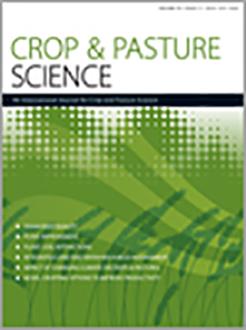Echinochloa colona and E. crus-galli are two important annual grass weeds distributed throughout the summer cropping regions of Australia. Both species are highly problematic weeds, responsible for yield losses of up to 50% in summer grain crops. The success of Echinochloa species as weeds is attributed to their rapid growth, prolific seed production, seed dormancy and adaptability to a wide range of environments. Importantly, E. colona has evolved resistance to glyphosate in Australia, with resistant populations now widespread across the summer cropping regions. Fallow management of E. colona with glyphosate alone is risky in terms of increasing the chance of resistance and highly unsustainable; other control strategies (residual herbicides, strategic tillage, etc.) should be considered to complement herbicides. This review provides a summary of current information on the biology, ecology and management of Echinochloa species. The knowledge gaps and research opportunities identified will have pragmatic implications for the management of these species in Australian grain cropping systems.
BioOne.org will be down briefly for maintenance on 17 December 2024 between 18:00-22:00 Pacific Time US. We apologize for any inconvenience.
How to translate text using browser tools
20 November 2019
Biology and management of Echinochloa colona and E. crus-galli in the northern grain regions of Australia
Asad Shabbir,
Bhagirath S. Chauhan,
Michael J. Walsh
ACCESS THE FULL ARTICLE

Crop and Pasture Science
Vol. 70 • No. 11
November 2019
Vol. 70 • No. 11
November 2019
barnyard grass
conservation cropping
weed biology
weed management





